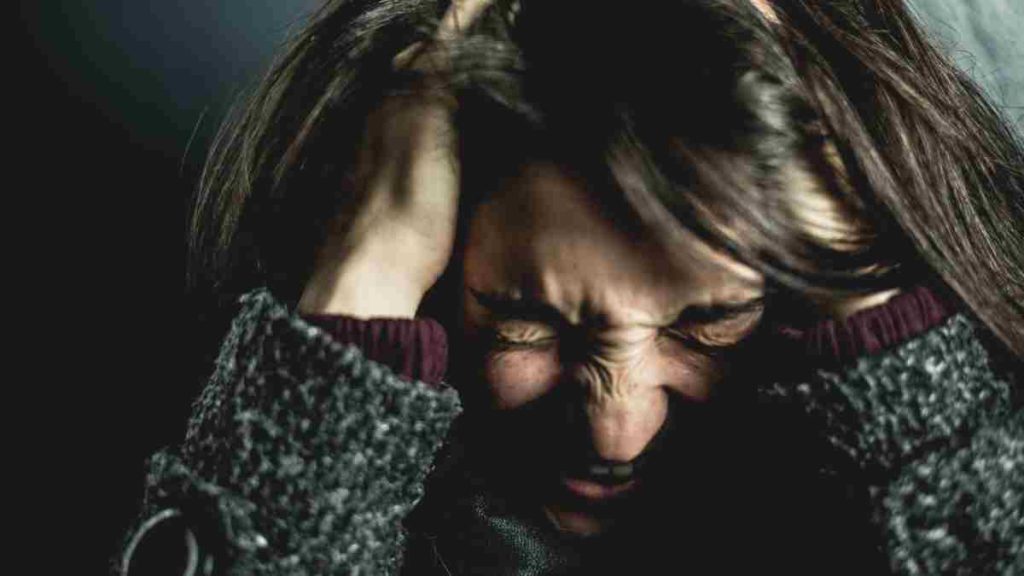INDIA: It’s a common misconception that negative events that happened to you as a child don’t really influence you. In your life, you may have heard expressions like “children are resilient” or “They’re so young, they won’t even remember this.”
However, studies have shown that traumatic experiences in childhood can have long-lasting consequences, with an especially high link to adult anxiety. A person’s emotional and physical health can be negatively impacted by traumatic experiences they had as a child. It has been well-documented that traumatic events experienced during childhood can lead to the development of mental health conditions such as anxiety disorders in adulthood. This article will explore the link between childhood trauma and anxiety disorders in adulthood.
Childhood trauma and its types
Childhood trauma can be defined as any experience that a child finds overwhelming and stressful. Various reasons, including abuse, neglect, natural disasters, and accidents, can lead to traumatic experiences. Children who experience trauma may feel frightened, helpless, and powerless. They may also experience feelings of shame, guilt, and confusion.

There are various types of childhood trauma that an individual may experience. These include physical abuse, sexual abuse, emotional abuse, neglect, and exposure to violence. Physical abuse can involve hitting, kicking, or slapping a child. Sexual abuse can involve any type of unwanted sexual contact with a child.
Emotional abuse can involve verbal or emotional attacks that can have a lasting impact on a child’s mental health. Neglect can involve a lack of basic needs such as food, shelter, and medical care. Exposure to violence can involve witnessing or experiencing violent events such as domestic violence or community violence.
What are anxiety disorders?
Anxiety disorders are a group of mental health conditions that are characterized by excessive fear or worry. These conditions can be disabling and can interfere with an individual’s ability to carry out daily activities. Disorders of the nervous system can range from mild to severe and include panic disorder, Generalized Anxiety Disorder (GAD), social anxiety disorder, and phobias.
The link between childhood trauma and anxiety disorders
Studies have shown that individuals who experience childhood trauma are at an increased risk of developing anxiety disorders in adulthood. The trauma experienced during childhood can have a lasting impact on an individual’s mental health and can lead to the development of anxiety disorders. The impact of childhood trauma on the development of anxiety disorders can be attributed to various factors such as changes in brain structure and function, altered stress response systems, and changes in the immune system.

Changes in brain structure and function
Childhood trauma can lead to changes in brain structure and function. These changes can have a lasting impact on an individual’s mental health and can increase their risk of developing anxiety disorders. The areas of the brain that are responsible for processing emotions and memories can be affected by childhood trauma. This can lead to difficulties in regulating emotions and can increase an individual’s risk of developing anxiety disorders.
Altered stress response systems
Childhood trauma can also lead to alterations in the stress response systems. The stress response systems are responsible for regulating the body’s response to stress. Individuals who experience childhood trauma may have a hyperactive stress response system, which can lead to an increased risk of developing anxiety disorders. The hyperactive stress response system can cause individuals to feel anxious, irritable, and agitated.

Changes in the immune system
Childhood trauma can also lead to changes in the immune system. The function of the immune system is to keep the body free from harmful pathogens. Individuals who experience childhood trauma may have a weakened immune system, which can increase their risk of developing anxiety disorders. A weakened immune system can make individuals more susceptible to infections and can also lead to the development of chronic health conditions.

Conclusion
In conclusion, childhood trauma can have a lasting impact on an individual’s mental and physical health. The trauma experienced during childhood can increase an individual’s risk of developing anxiety disorders in adulthood. The impact of childhood trauma on the development of anxiety disorders can be attributed to various factors such as changes in brain structure and function, altered stress response systems, and changes in the immune system.
Early intervention and treatment can help individuals who have experienced childhood trauma manage their symptoms and reduce their risk of developing anxiety disorders.
Also Read: World Health Day: Significance of De-stressing Techniques and Mental Health Coping Mechanisms



